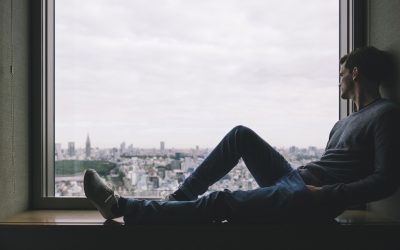Why does our Coronavirus world stop me sleeping and what can I do?
Perhaps it’s taking you ages to get to sleep at the moment. And then you keep waking up. And when it’s finally time to get up you’re exhausted..
And you’re doing so much more dreaming than usual.
You might be relieved to know you’re not alone.
So what’s going on?
For most of us at least, some elements of our lives have been upended by the changes that the Coronavirus has brought. We may be separated from family or unable to escape them; isolated or utterly deprived of privacy. We may be working under exceptional pressure; or feeling the pressure of having no work. For most of us there is a great deal of uncertainty.
Any and all of these things can impact our ability to meet our emotional needs well – for instance our security, control and attention needs may be compromised (you can see our nine emotional needs listed here) – and this in turn makes it harder to maintain our mental health.
But how does this interfere with our sleep?
There are two things going on here:
- Firstly, the brain is a problem-solving organ that needs to be exercised. When we climb into bed and remove ourselves from the distractions available during the day, it’s not surprising that our brain decides now is the time to start ruminating on our unmet needs and solving problems of uncertainty.
- Secondly, this daily cycle of uncertainty, changed environment and non-stop bad news results in us going to bed in a state of high emotional arousal, i.e. stressed and anxious. Because our brain must find a way to deactivate this arousal, and it does so through dreaming, we end up dreaming far more than usual. This not only interrupts our sleep, it also reduces the amount of time we spend in slow-wave sleep which is when our body and mind repairs and rebuilds. So we wake feeling tired and demotivated.
So if I can’t change what’s going on around me how can I sleep better?
It IS possible to sleep better despite what’s going on around us. Here are a few things you can try:
- 7/11 breathing is a proven technique for quickly stimulating your body’s relaxation response and helping the onset of sleep and you can do this before or when you’re in bed. Breathe in and out through your nose and be sure to breathe into your stomach rather than your chest – you will be able to feel your stomach rise and fall when you do this correctly, your chest and shoulders won’t move. And breathe out more slowly than you breathe in – if you find breathing in for a count of 7 and out for 11 is too much, then in for 5 and out for 9 or in for 3 and out for 7 will work just as effectively. It can help to think of the out breath as if it’s air leaking from a hole in a balloon, no effort required. Lots of people find that this technique quickly helps them feel profoundly relaxed.
- ‘Boxing-up’ those thoughts that are keeping you awake can be great for calming the mind and helping you feel more secure. Try visualising a box in your mind, really focus on the detail of the box – make it plastic or cardboard, white or brown, give it a secure lid, write a label on it – then imagine packing all those thoughts into the box, shutting the lid tight and placing it somewhere outside of your bedroom.
- Keep a Gratitude diary – write down three things you’re grateful for before you go to bed. Translating positive thoughts into concrete language helps your brain become more aware of them and counters negative thinking. This promotes sleep and can also help meet your need for control. I find it especially helpful to be grateful for future things as if they have happened now – “I’m grateful that lockdown is over and I can visit my kids”.
- Stay off news and social media channels and devices for at least an hour before bed to reduce stimulation of your anxiety response. You’ll also avoid the effect of the blue light emitted by screens which suppresses melatonin, a hormone that should increase when we’re preparing for sleep, and so stimulates the brain when it should be relaxing
- The more you can do to meet your emotional needs during the day the less likely you are to suffer unresolved emotional arousal and consequent excessive dreaming. Here you can find some hints on meeting your needs for autonomy and control and security and links to articles on meeting other needs.
Finally, recognising and accepting that some sleep disturbance is probably inevitable in such unusual times is a good way of relieving ourselves of some pressure. And that acceptance in itself may even help you sleep.
I hope you’ll find at least some of these tips useful. And I’d love to hear about any of your own…
You may also like:
How to Manage Emotions in Difficult Times #9 – Our need for Meaning
Finding meaning and purpose in our lives helps us build and maintain resilience and strong mental health. Here are some ideas for finding meaning in these challenging times…
How to Manage Our Emotions in Difficult Times #7 & 8 – Our Privacy & Intimacy Needs
Did you know that you can reduce anxiety, depression, anger and stress by ensuring you have the right amounts of privacy and intimacy in your life?…
How to Manage Our Emotions in Difficult Times #5 & 6 – Our Status & Achievement Needs
Meeting our Status & Achievement needs helps reduce the chance of us developing addiction or anger management issues. Find out how to meet them here…
LET'S TAKE THE FIRST STEP
CONTACT

07971 528178

rob@robmarks.co.uk

Westcliff-on-Sea, Essex
INFORMATION
CONTACT

07971 528178

rob@robmarks.co.uk





0 Comments